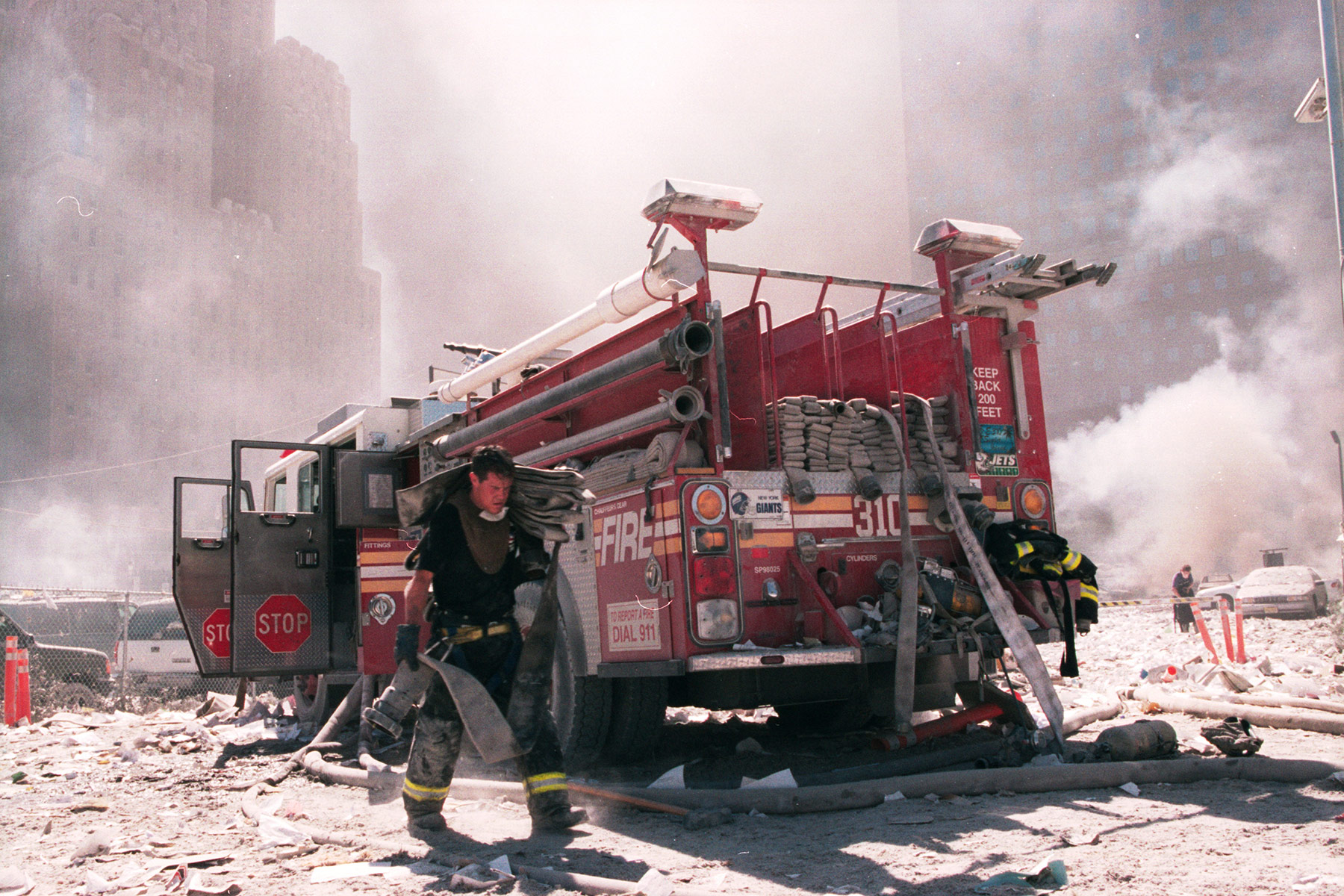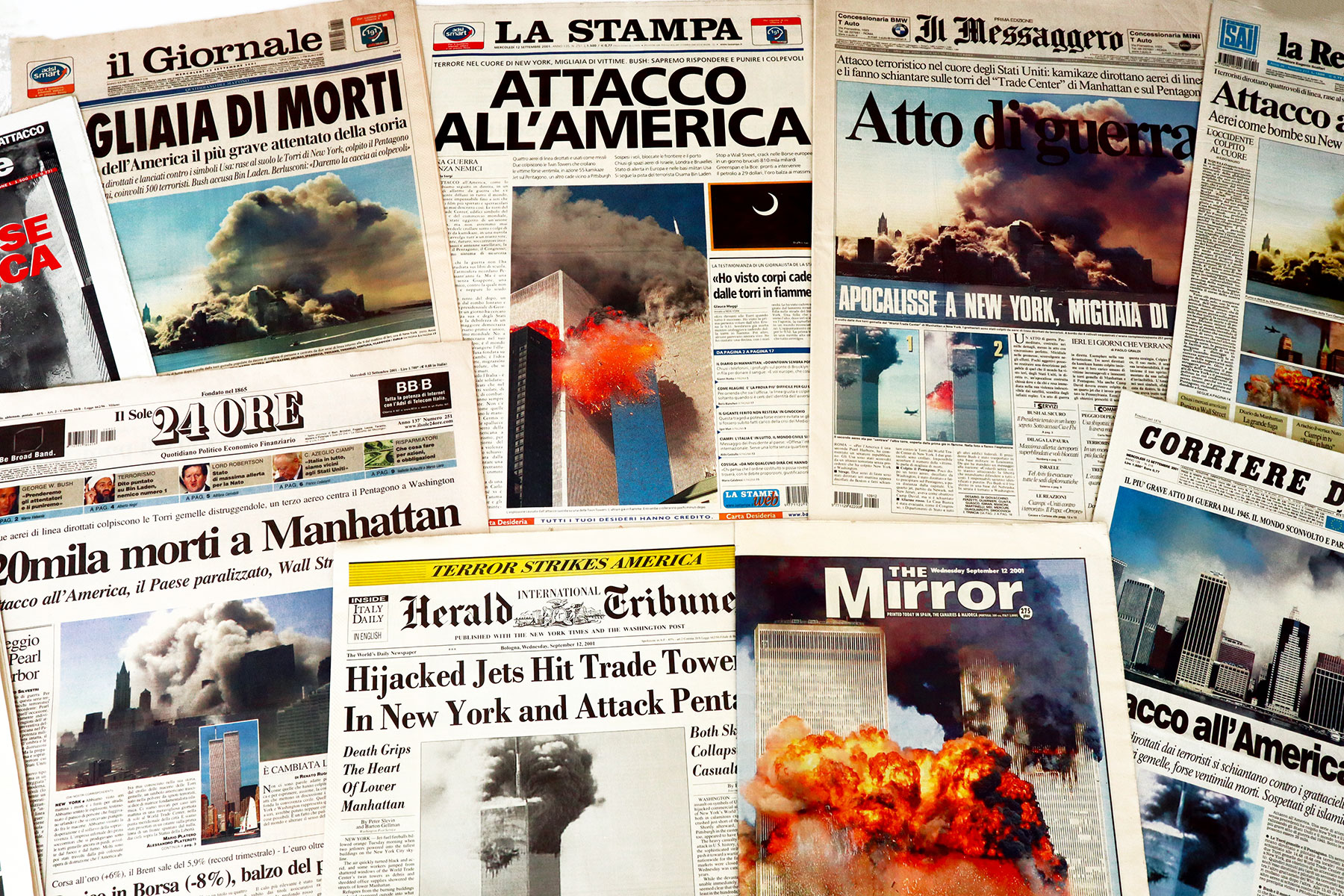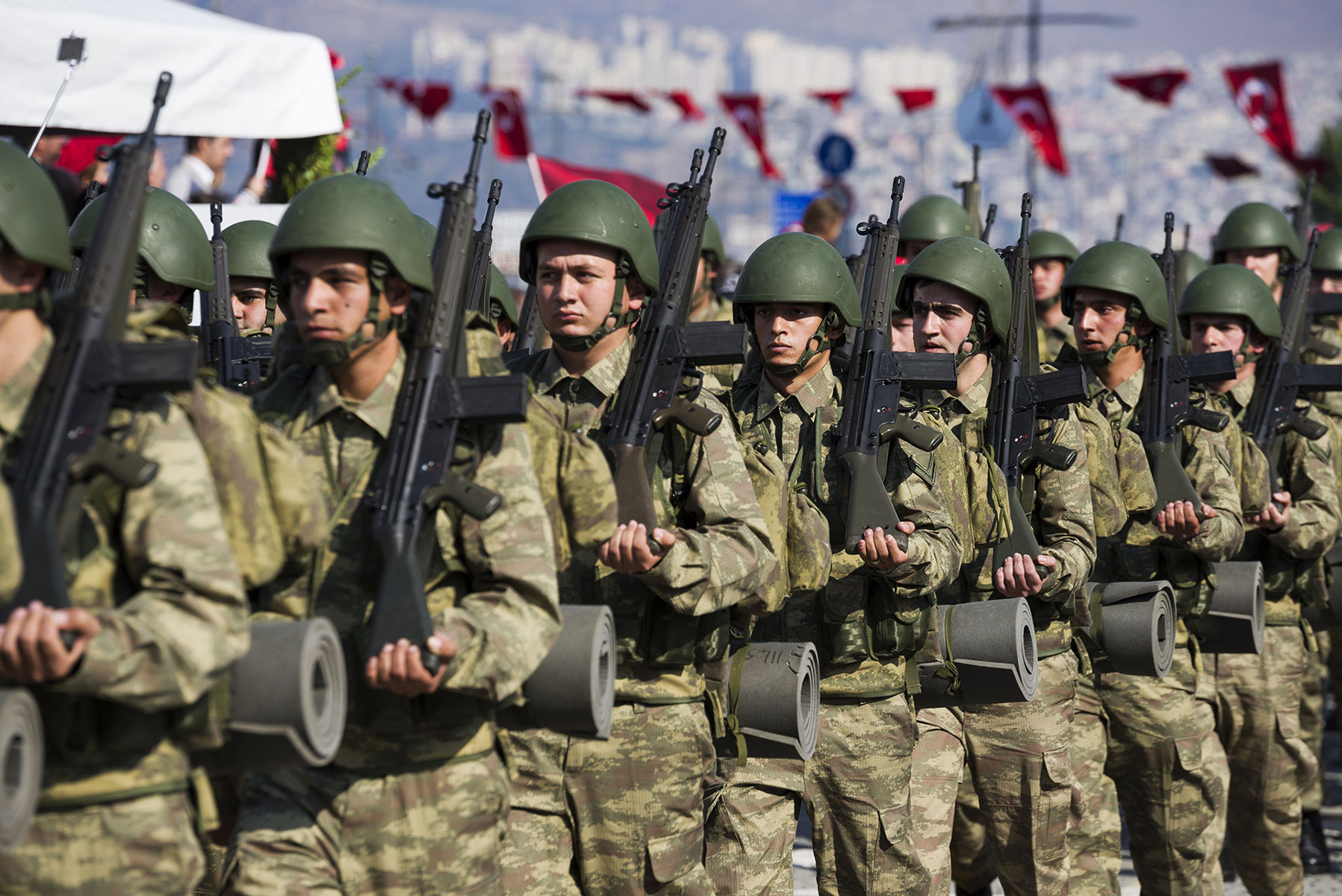Earlier this month, Americans and people around the world commemorated a day that still resonates with disbelief, astonishment and profound sorrow. We don’t know how the world will look at the events of 9/11 in 100 years. But, after 20 years, the heaviness persists and the portents remain still unclear.
As if to lend greater somber, the commemoration took place as the US and the world watched America and its allies’ tragic and humiliating withdrawal from Afghanistan. No fiction writer could have written a sadder, more unreal denouement to America’s 20-year saga to right the wrongs and assuage the grief of 9/11.
360° Context: How 9/11 and the War on Terror Shaped the World
Many commentators have written that 9/11 was for the millennial generation what the assassination of John F. Kennedy was for the boomers. While identifying with the latter group, I found the terrorist attacks of September 11, 2001, far more consequential. One can grasp how one deranged madman could target an American president. After all, it wasn’t the first time in US history. But a band of madmen belonging to an extreme, anti-civilizational group of hate-driven madmen attacking in explosively spectacular fashion office buildings filled with innocent human beings, killing nearly 3,000 and forever upending the lives of tens of thousands of other innocents?
Transformative Moment
As a US diplomat assigned to the State Department on that day, I stood in speechless astonishment on the north bank of the Potomac River barely an hour after the attack on the Pentagon on the other bank. My department had been evacuated just moments before, authorities believing that other terrorist-controlled airliners were still headed toward Washington. A surreal chaos whirled about us in America’s capital city. Colleagues and I kept telling ourselves that surely the fire raging across the river with its great billowing clouds of black smoke would soon be extinguished. (It would take days.) But we could never have imagined the impact it would have on our lives and more importantly on the course of a nation.
Countless writers, journalists, experts, pundits and social media junkies have offered up their assessments of how America went from a nation united in confronting that day’s tragedy to one divided at home and defeated abroad. It’s especially noteworthy because on the day the terrorists struck, America stood at the pinnacle of global supremacy, the hyper-power with a dynamic and ever-growing economy and armed forces unparalleled in history. But it wasn’t what the terrorists did that day that brought the country to this point. Americans — and specifically American leaders — did it to themselves.
Consider America’s actions after the attacks that day. Rightly and commendably the country earned the support of virtually every country in the world in going after al-Qaeda. Eliminating it, however, was never a realistic option. As it’s often said, an idea can’t be killed, and the extremist ideology that drove al-Qaeda then persists today within that organization and the many offshoots it has spawned. But diminishing its capabilities in order to severely constrain its ability to threaten the US or other nations was a realistic goal. And it can be said that it has largely been achieved.
Terrorism is a tactic, not a movement. Whether by the Mafia, Irish Republican Army, Revolutionary Armed Forces of Colombia (aka FARC), Lenin and Stalin, Mao’s Red Army, or Julius Ceasar and his legions rampaging through Gaul, it has been employed often throughout history and often very successfully. It will likely continue. It can be controlled. But as a tactic, like an idea, it is a permanent element of human conflict.
“Unnatural and Unhealthy”
But it wasn’t what America did to fight and contain terrorism that necessarily diminished its global power and stature, though missteps were made. It was the two misadventures on which it embarked shortly after 9/11, first in Afghanistan and then in 2003 in Iraq. “It’s unnatural and unhealthy for a nation to be engaged in global crusades for some principle or idea while neglecting the needs of its own people.” Had America’s leaders bothered to heed that wisdom of former US Senator J. William Fulbright or to consult the volumes of books, articles and reports of the country’s history in Vietnam in the 1960s and 70s, the lessons would have been starkly clear. Taking on projects to quell or settle internal insurrection or launch nation-building in countries still struggling for a national identity is a fool’s errand.
The lessons of Vietnam were manifestly obvious in Afghanistan. It was and remains a country historically riven by tribal, ethnic and religious strife. No nation has ever succeeded in bringing it under control, certainly not for very long. Outsiders have constantly interfered there because of the disunity. Warlords moved in and out of power in various parts of the country.
It is easy to say with today’s 20/20 hindsight that 90 days after expelling both al-Qaeda and the Taliban, the US should have withdrawn from Afghanistan and asked the UN Security Council to take charge of organizing a government. As a superpower outsider, the US was exactly the wrong nation to undertake that task. But, as in Vietnam, impelled by ambition, hubris, arrogance, grand visions and considerable self-deception, America plunged ahead.
Despite its rushed and ignominious departure, America and its allies can take credit for some of their successes (really) in Afghanistan. Education levels, especially among girls, are up considerably. Women have many more opportunities and greater freedom today than in 2001. Afghan infrastructure is much improved. Even the standard of living improved for many Afghans.
Unfortunately, because of the abject failure of the political project, it is unclear whether any of that is sustainable. The history of previous Taliban rule would suggest otherwise. On the other hand, we cannot yet know the impact of America’s 20-year Afghanistan enterprise on individual Afghans and their perceptions of themselves and their future, especially women.
Lessons and Lamentations
While Afghanistan may have been seen as a war of necessity at its start, it sadly evolved into one of unachievable expectations. Donald Trump saw it much that way — though with little understanding of its complexities, other than it was far away from America and had little economic value to the US. It was left to Joe Biden to make the painful but inevitable and necessary decision that it was time to leave.
As was done following our Vietnam exit, volumes will now be written about this tragic episode in US history, including by institutions within America’s own government. They will be authored by credible and competent scholars and political and military experts. They will be exhaustively researched. They will give blow-by-blow accounts of decisions made, policies adopted, actions taken, and statements, declarations and promises issued. Charts, graphs, maps and statistics will be presented. They will point out the many errors, lies, self-deception and willful blindness. They will also relate the sacrifices of thousands of Americans, most of whose stories will never be known. They will also cite the pains and loss of so many Afghans. And they will all end up with much the same conclusion. America and its allies withdrew after finally confronting one ineluctable reality.
Those studies will offer invaluable insights to Americans and their leaders. But will they learn? Will Vietnam, Iraq and Afghanistan finally prove convincingly instructive to prevent the country from undertaking such adventures in the future, however nobly perceived?
To listen to and read the never-ending stream of observations on this pregnant moment in the nation’s history has become a modern-day version of the Book of Lamentations. Indeed, the country’s challenges, internal and external, are manifold and daunting. Heretofore, its democracy held the capacity to absorb, learn, adapt and rebound from its setbacks.
But the question bears repeating if the nation is to move beyond this point in its history. Will it learn?
The views expressed in this article are the author’s own and do not necessarily reflect Fair Observer’s editorial policy.
For more than 10 years, Fair Observer has been free, fair and independent. No billionaire owns us, no advertisers control us. We are a reader-supported nonprofit. Unlike many other publications, we keep our content free for readers regardless of where they live or whether they can afford to pay. We have no paywalls and no ads.
In the post-truth era of fake news, echo chambers and filter bubbles, we publish a plurality of perspectives from around the world. Anyone can publish with us, but everyone goes through a rigorous editorial process. So, you get fact-checked, well-reasoned content instead of noise.
We publish 2,500+ voices from 90+ countries. We also conduct education and training programs
on subjects ranging from digital media and journalism to writing and critical thinking. This
doesn’t come cheap. Servers, editors, trainers and web developers cost
money.
Please consider supporting us on a regular basis as a recurring donor or a
sustaining member.
Support Fair Observer
We rely on your support for our independence, diversity and quality.
Will you support FO’s journalism?
We rely on your support for our independence, diversity and quality.















